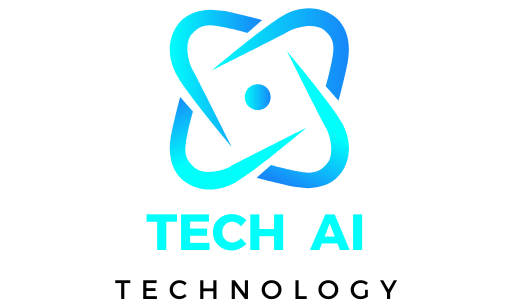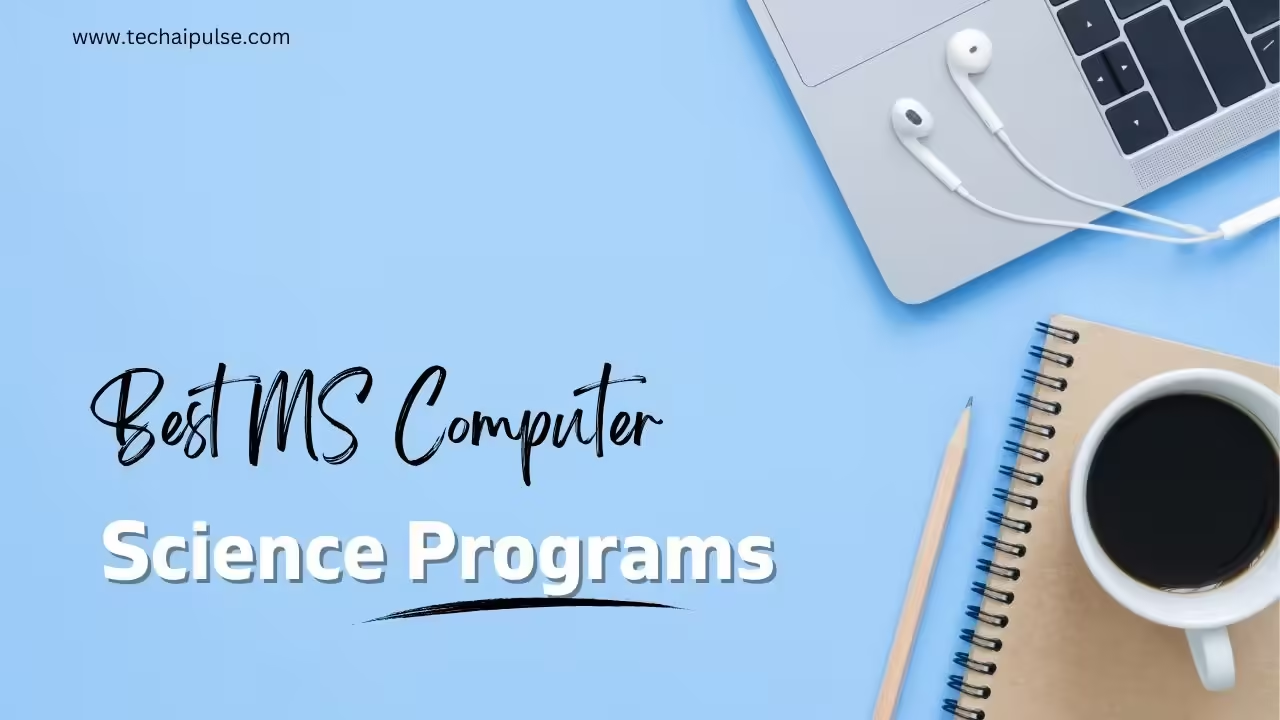In 2025, choosing the best MS Computer Science programs is more critical than ever for aspiring tech professionals. As the field continues to evolve with advancements in artificial intelligence, machine learning, cybersecurity, and data science, it’s essential to select a program that offers both cutting edge education and strong industry connections.
Whether you’re looking to specialize in software engineering, cloud computing, or big data analytics, the right MS program can shape your career trajectory. In this article, we’ll dive into the most renowned programs that are leading the charge in computer science education, ensuring you’re equipped with the skills and knowledge to thrive in the tech world.
Best MS Computer Science Programs in 2025: A Comprehensive Guide
The best MS Computer Science programs in 2025 are those that equip students with the latest skills in AI, machine learning, cybersecurity, cloud computing, and data science. These programs not only provide a deep understanding of fundamental concepts but also integrate emerging technologies to ensure students stay competitive in an ever changing tech landscape.
If you’re aiming for a rewarding career in tech, finding a program that balances theoretical knowledge with hands on experience is crucial. Here’s everything you need to know about top ranked computer science master’s programs that will shape your future in the industry.
Cutting Edge Curriculum: Staying Ahead in Tech
The best MS CS programs for 2025 are designed with a forward thinking curriculum that adapts to the fast paced advancements in the tech world. A significant focus is placed on artificial intelligence (AI), machine learning (ML), quantum computing, and data analytics. These fields are in high demand across industries, and top programs incorporate them into the core syllabus.
Universities offering these programs partner with tech giants, ensuring that their curriculum is in sync with real world applications. By enrolling in these programs, students gain exposure to the latest tools and frameworks, preparing them for a future in the tech industry.
Specialized Tracks: Tailored to Your Career Goals
In 2025, many of the best MS Computer Science programs offer specialized tracks, allowing students to tailor their education to their career goals. Tracks like software engineering, cloud computing, cybersecurity, and robotics are increasingly popular. These tracks help students build a niche skill set that is highly sought after by top employers.
With the rise of AI powered systems, blockchain technology, and big data solutions, choosing a track that aligns with the latest industry trends will provide a competitive edge in the job market. Whether you want to become a cloud architect, data scientist, or AI engineer, these specialized programs provide the depth and expertise needed to succeed.
Top Universities Offering MS in Computer Science: Where to Study?
When searching for the best MS Computer Science programs in 2025, certain universities stand out for their innovative teaching methods and strong industry ties. Schools like Stanford University, Massachusetts Institute of Technology (MIT), and Carnegie Mellon University consistently rank among the top for their computer science programs.
These institutions offer cutting edge labs, access to industry leaders, and a global alumni network that boosts career prospects. Other universities, including UC Berkeley and Harvard University, also offer specialized programs with access to research initiatives that advance the future of computing.
Industry Connections and Internship Opportunities
One of the key advantages of the best MS CS programs in 2025 is their strong industry connections. Many programs offer internship and collaboration opportunities with leading tech companies such as Google, Amazon, and Microsoft.
These partnerships allow students to gain hands on experience and build professional networks that can lead to job offers post graduation. Moreover, some programs include capstone projects that involve working on real world problems with tech companies, giving students practical experience in solving complex issues.
Admission Requirements: What You Need to Know
Gaining admission to the best MS Computer Science programs requires a strong academic background, typically with a Bachelor’s degree in computer science or a related field. Most top universities look for candidates with a solid understanding of programming languages, mathematics, and problem solving skills.
Additionally, a good GRE score (if required), relevant work experience, and a strong personal statement can significantly enhance your chances of acceptance. As the demand for tech professionals continues to rise, these programs remain highly competitive, with selective admission processes ensuring that only the most promising candidates are accepted.
Career Outcomes: High Demand for Computer Science Graduates
Graduates of the best MS Computer Science programs in 2025 can expect high demand in a wide range of industries. With the rapid growth of AI, data science, and cybersecurity, there are numerous career paths available.
Whether you’re aiming for a role as a data analyst, AI researcher, or software developer, the skills learned in these top programs will ensure you’re ready to tackle the challenges of tomorrow’s tech landscape. Salaries in the tech field remain some of the highest, making an MS in Computer Science one of the most rewarding investments for your future.
2 Key Factors to Consider When Choosing an MS Computer Science Program
When selecting a Master’s in Computer Science (MS CS) program, it’s essential to consider several key factors that directly influence your academic and career trajectory. Here’s a quick guide to help you make an informed decision in 2025:
1. Curriculum and Specializations
A forward thinking curriculum is critical in today’s fast evolving tech landscape. Leading MS CS programs provide specialized tracks that cater to emerging fields like Artificial Intelligence (AI), Machine Learning, and Cybersecurity.
These tracks allow students to gain deep expertise in high demand areas, making them more competitive in the job market. Look for programs that offer flexible options, hands on experience, and up to date content that aligns with industry needs.
2. Accreditation and Reputation
Accreditation ensures the quality and credibility of the program. Accredited programs are recognized globally, making it easier to pursue further education or job opportunities worldwide. The university’s reputation also matters; top schools with well established computer science departments attract expert faculty and foster a high quality learning environment.
Consider programs from universities known for producing successful graduates in the computer science field.
3. Research Opportunities and Labs
Top MS CS programs place a significant emphasis on research and innovation. Research opportunities, particularly in AI, cybersecurity, or data science, can significantly enhance your learning experience. Access to cutting edge labs and partnerships with tech companies allows students to collaborate on real world projects and solve complex problems.
Universities that prioritize research equip you with skills that go beyond theory and prepare you for impactful careers in the tech industry.
4. Location and Industry Connections
Geography plays a crucial role in your MS CS journey. Proximity to tech hubs like Silicon Valley, Boston, or Seattle offers distinct advantages. These areas have thriving tech ecosystems, providing numerous networking opportunities, internship chances, and industry connections.
Internship programs and corporate partnerships allow you to gain hands on experience and build relationships with top tech companies, boosting your job prospects after graduation.
Top MS Computer Science Programs in 2025: Leading Universities for Tech Professionals
As technology rapidly evolves, an MS in Computer Science has become one of the most sought after qualifications for aspiring tech professionals. In 2025, several top universities continue to lead the way in providing cutting edge education and research opportunities.
These programs equip students with the skills needed for the rapidly changing landscape of AI, machine learning, robotics, cybersecurity, and data science. Below is a look at the top MS Computer Science programs you should consider.
1. Stanford University (USA)
Overview of the Program:
Stanford’s MS in Computer Science stands as a world renowned program known for its diverse specializations, including Artificial Intelligence (AI), Machine Learning (ML), and Robotics.
Strengths in AI, Machine Learning, and Robotics:
With its access to Silicon Valley, Stanford is a hub for groundbreaking research and hands on experience in AI and ML, often pushing the envelope in these fields. Students dive into projects that shape future tech advancements.
Industry Connections and Career Outcomes:
The proximity to top tech companies such as Google, Tesla, and Facebook offers students unparalleled career networking opportunities, securing them roles in innovative fields like autonomous driving, AI, and robotics.
2. Massachusetts Institute of Technology (MIT) (USA)
Focus on Innovative Technologies and Research:
MIT’s MS Computer Science program stands out for its deep integration of new technologies such as blockchain, AI, and quantum computing.
How MIT’s Program Prepares Graduates for Leadership Roles in Tech:
The program emphasizes not just technical proficiency but leadership in solving global challenges. MIT graduates often occupy senior positions in top tech companies and research institutions worldwide.
3. Carnegie Mellon University (USA)
Renowned for Cybersecurity, Robotics, and Software Engineering:
Carnegie Mellon is known for its rigorous programs in cybersecurity, robotics, and software engineering. Their CMU Robotics Institute is a leading research hub.
Unique Collaborative Projects with Industry Partners:
The university excels in providing students with opportunities to work on real world projects with major industry leaders, ensuring they’re ready for the evolving tech market.
4. University of California, Berkeley (USA)
Strengths in Data Science and Cloud Computing:
UC Berkeley’s MS program is highly regarded for its focus on data science, cloud computing, and big data technologies. Students are exposed to the latest innovations in these fields.
Research Centers and Interdisciplinary Opportunities:
With research centers like the Berkeley Artificial Intelligence Research (BAIR) Lab, Berkeley is at the forefront of cutting edge tech. Students can also collaborate across disciplines like bioinformatics and computational neuroscience.
5. University of Cambridge (UK)
Top European Program with a Global Reach:
The University of Cambridge offers a prestigious MS program in Computer Science, attracting top tier students globally.
Focus on Software Engineering, AI, and Digital Transformation:
Cambridge’s program is tailored to software engineering, AI, and the digital transformation of industries. It’s known for its rigorous theoretical foundation combined with practical applications in tech.
6. ETH Zurich (Switzerland)
Cutting Edge Research and Strong Emphasis on Computer Science Fundamentals:
ETH Zurich offers one of Europe’s most comprehensive MS Computer Science programs, focusing on both advanced research and core principles like algorithms and data structures.
International Appeal and Industry Relationships:
ETH Zurich is highly regarded for its international perspective, with strong ties to global tech companies, ensuring students have opportunities to work on groundbreaking projects.
7. National University of Singapore (NUS)
Leading in AI and Data Science in Asia Pacific:
NUS offers a cutting edge MS program with an emphasis on Artificial Intelligence, Data Science, and emerging technologies in the Asia Pacific region.
Strong Academic Partnerships with Tech Companies in the Region:
NUS’s collaborations with global tech giants like Google and Huawei provide students with research and internship opportunities that set them up for success in the industry.
Specialized Tracks and Concentrations in MS Computer Science: The Path to Future Careers

As the field of computer science continues to evolve, pursuing a Master’s in Computer Science (MSCS) with specialized tracks has become more essential for career growth in 2025.
With advancements in Artificial Intelligence (AI), Machine Learning (ML), Cybersecurity, Cloud Computing, Data Science, Software Engineering, and Robotics, these concentrations are shaping the future of technology. Here’s a closer look at the most in demand MSCS tracks that are revolutionizing industries and offering lucrative career opportunities.
Artificial Intelligence (AI) and Machine Learning (ML)
In 2025, AI and ML are more important than ever. These technologies are being applied across industries from healthcare to finance, driving innovation and automation. Specializing in AI/ML allows students to work on cutting edge projects and build systems that learn and adapt over time.
Programs offering these tracks include Stanford University, MIT, and UC Berkeley, which focus on advanced algorithms, neural networks, and deep learning.
- Why It Matters: AI and ML are no longer just niche areas; they have become integral to solving complex problems in real world applications. The growing demand for AI powered solutions in business, healthcare, and autonomous systems makes these tracks a top choice.
Cybersecurity
With cyber threats becoming more sophisticated, the demand for cybersecurity professionals is skyrocketing. In 2025, businesses, governments, and organizations are investing heavily in securing their networks and data. The rising trend of digital first strategies means that cybersecurity is no longer an afterthought but a priority.
Top programs in cybersecurity include Carnegie Mellon University and University of California, San Diego. These programs provide hands on training in network security, cryptography, ethical hacking, and cyber risk management.
- Why It Matters: As more services and industries go online, the need for skilled cybersecurity professionals to protect sensitive data and maintain privacy is at an all time high.
Cloud Computing and Distributed Systems
The importance of cloud computing and distributed systems is growing in 2025 as companies scale their infrastructure. Cloud architecture enables efficient data storage, computing power, and accessibility, while distributed systems help in maintaining performance across large networks. Specializations in cloud computing are key to understanding the infrastructure that powers modern businesses.
Universities like Georgia Tech and University of Illinois Urbana Champaign offer specialized tracks focusing on cloud architecture, distributed computing, and cloud security.
- Why It Matters: Cloud computing is central to digital transformation. Businesses rely on cloud solutions for data storage, application hosting, and remote work solutions.
Data Science and Big Data Analytics
Data science is reshaping industries, offering insights that drive business strategies and innovations. In 2025, every organization needs skilled professionals who can analyze vast datasets, identify patterns, and make data driven decisions. Data science includes big data analytics, machine learning, and data visualization.
Top MS programs for data science include Harvard University, University of Washington, and UC Berkeley, where students master data management, data mining, and statistical modeling.
- Why It Matters: Data science is a core component of industries like finance, marketing, healthcare, and more. The ability to turn raw data into actionable insights is a crucial skill that organizations seek.
Software Engineering and Development
In 2025, software engineering is at the heart of developing scalable solutions. A strong foundation in software architecture, design patterns, and system integration is essential for creating efficient software systems. Advanced skills in software development ensure that applications run smoothly across various platforms.
Programs at California Institute of Technology and University of Texas at Austin focus on software engineering techniques, application development, and systems architecture.
- Why It Matters: As digital solutions expand across sectors, engineers are needed to create robust, scalable, and secure applications, making software engineering one of the most sought after specializations.
Robotics and Automation
Robotics is rapidly transforming industries like manufacturing, healthcare, and logistics. In 2025, robotics and automation are increasingly important for streamlining operations and improving productivity. Specializing in robotics allows students to design and build intelligent systems that can operate autonomously, from robots performing surgeries to automated factories.
Top programs for robotics include Carnegie Mellon University, University of Michigan, and Stanford University. These programs focus on robotic systems, artificial intelligence in robotics, and automation engineering.
- Why It Matters: As industries look for ways to increase efficiency and reduce costs, robotics plays a critical role in automating repetitive tasks, increasing precision, and improving safety in hazardous environments.
Admission Requirements for MS Computer Science Programs: A 2025 Guide
When applying for an MS in Computer Science, understanding the admission requirements is key to a successful application. Universities assess applicants based on various academic, personal, and professional factors. Let’s break down the core elements you need to know in 2025.
General Eligibility Criteria
Academic Prerequisites:
To apply for an MS in Computer Science, you must have a relevant Bachelor’s degree, typically in computer science, engineering, or a related field. Many universities also prefer applicants with foundational coursework in programming, algorithms, and data structures, ensuring you’re well prepared for advanced studies.
GRE or Standardized Test Scores (if applicable in 2025):
While some universities have made GRE scores optional, many still require them. If required, achieving competitive scores is important. However, many institutions now place more emphasis on academic history and personal achievements than standardized test results.
Prerequisite Skills and Knowledge
Programming Languages and Algorithms:
A solid understanding of programming languages such as Python, Java, or C++ is crucial. Additionally, in depth knowledge of algorithms and data structures is highly valued. Familiarity with systems programming, machine learning, and software engineering principles can strengthen your application.
Mathematics and Analytical Skills:
Strong mathematical skills are essential. Courses like discrete mathematics, linear algebra, and calculus are often prerequisites. These subjects provide the analytical foundation required for tackling complex computer science concepts.
Relevant Work Experience or Internships:
Internships or work experience related to computer science, whether through coding, research, or software development, can give you a competitive edge. Practical exposure to the tech industry showcases your ability to apply theoretical knowledge in real world scenarios.
Application Process
Key Components of the Application:
- Personal Statement: This is your opportunity to explain why you want to pursue an MS in Computer Science and your academic and professional goals. Craft a compelling story that aligns with the program’s strengths.
- Letters of Recommendation: Strong letters from professors or professionals who know you well can highlight your potential. Ensure they focus on your skills, achievements, and character.
- Resume: A well structured resume showcasing your academic achievements, relevant work experience, and extracurricular activities is essential.
Importance of a Strong Statement of Purpose:
Your statement of purpose (SOP) is a critical part of the application. It should reflect your academic journey, your motivation to pursue a career in computer science, and your specific interests within the field. Tailor it to each program, demonstrating how it aligns with your career goals.
Selection Criteria and Tips
How Universities Assess Applicants:
Universities evaluate candidates based on academic rigor, the strength of their application materials, and extracurricular involvement. Top universities may also consider leadership roles in tech related clubs or community service projects.
How to Stand Out in a Competitive Field:
To make your application stand out, highlight any unique experiences, such as groundbreaking projects, leadership roles in technology clubs, or publications. Focus on your commitment to growth in computer science and any distinctive skills you bring to the table.
Career Opportunities After Graduating from an MS in Computer Science (2025)

Graduating with an MS in Computer Science opens doors to various high demand roles in technology. The job market in 2025 continues to favor specialists, offering lucrative opportunities in fields such as artificial intelligence (AI), cybersecurity, data science, and software development.
These sectors are constantly evolving, and with the growing reliance on digital transformation, the demand for skilled professionals has never been higher.
High Demand Jobs in 2025
Roles in AI, Cybersecurity, Data Science, and Software Development:
As technology advances, AI and machine learning experts are sought after to help develop smarter systems. Cybersecurity specialists are essential to protect organizations from increasing cyber threats. Data scientists are in demand to extract valuable insights from massive datasets.
Meanwhile, software developers continue to be a backbone of the tech industry, creating applications and services across all sectors.
Emerging Fields: Quantum Computing and Robotics
Quantum computing and robotics are rapidly growing fields with exciting potential. These areas require highly specialized knowledge in physics, algorithms, and mechanical engineering, offering groundbreaking career opportunities for MS graduates. As these fields mature, they will likely provide new industries and roles not seen before.
Salary Expectations for MS Computer Science Graduates
In 2025, MS Computer Science graduates can expect competitive salaries. On average, professionals in AI or data science earn between $120,000 and $160,000 annually, depending on location and experience. Cybersecurity experts and software engineers can expect similar ranges, with higher salaries for those with specialized skills or in leadership positions. Graduates entering emerging fields like quantum computing may command salaries even higher due to the niche expertise required.
How Specialized Skills Affect Earning Potential
Specialized skills, such as proficiency in machine learning, cloud computing, or blockchain development, can significantly increase earning potential. Graduates with certifications or hands on experience in high demand technologies often earn premiums, especially in senior or leadership roles.
Job Market Trends
Tech, Healthcare, Finance, and Manufacturing
The industries embracing computer science innovations in 2025 are diverse. Tech companies continue to lead the way, with positions in software development and AI. The healthcare sector is adopting data driven solutions, while finance is leveraging AI powered algorithms for financial predictions. Manufacturing is also embracing robotics and automation to streamline processes.
Entrepreneurial Ventures Post Graduation
The growing digital economy also provides ample opportunities for MS graduates to start their own ventures. With the rise of cloud platforms and AI tools, launching a startup has never been easier. Graduates with entrepreneurial mindsets can tap into areas like software as a service (SaaS), cybersecurity solutions, and AI consulting to create their own business opportunities.
Alumni Networks and Industry Connections
Strong alumni networks play a crucial role in job placement after graduation. These networks often offer exclusive access to job openings, internships, and mentorship opportunities. By leveraging industry connections, MS Computer Science graduates can significantly increase their chances of securing a role that aligns with their career goals. Graduates should invest in maintaining these relationships to build long term success.
Financial Considerations: Tuition and Scholarships for MS in Computer Science
Tuition Costs for Top MS Computer Science Programs
When pursuing an MS in Computer Science, tuition costs are a crucial factor. Top tier programs in the USA, such as those at Stanford, MIT, and UC Berkeley, have annual tuition fees ranging from $50,000 to $70,000. Globally, leading institutions like ETH Zurich and the University of Oxford offer competitive programs with tuition fees ranging from $30,000 to $45,000 per year.
It’s essential for prospective students to consider these costs while exploring programs that best align with their career goals and academic interests.
Scholarships and Financial Aid for MS Computer Science Students
Scholarships and financial aid are available to help alleviate the burden of high tuition costs. Many universities offer merit based scholarships, which award funding based on academic achievement. Additionally, need based scholarships can support students from diverse financial backgrounds.
Corporate sponsored scholarships from tech giants like Google, Microsoft, and Amazon also provide opportunities for funding. These scholarships often come with internship or job placement benefits, offering a practical advantage.
Government Programs and Corporate Sponsored Scholarships for Tech Students
Various government funded programs and private sector initiatives specifically target tech students. For example, the U.S. government offers federal financial aid options, including loans and work study opportunities. Many countries have national scholarships for STEM (Science, Technology, Engineering, and Mathematics) students, which can significantly reduce tuition costs.
Corporate sponsored scholarships, such as those from companies like IBM or Intel, often include networking opportunities and internships that can enhance students’ resumes and job prospects.
Return on Investment (ROI) for MS Computer Science Degree
While the tuition fees for an MS in Computer Science can be significant, the long term return on investment (ROI) can be substantial. Graduates from top programs often see salaries well above the national average, with entry level positions starting at $100,000 per year or more.
In fields such as artificial intelligence, data science, and cybersecurity, the demand for skilled professionals continues to rise. Over time, the ROI of an MS degree in Computer Science can far outweigh the initial cost, especially when considering the high earning potential and career advancement opportunities in the tech industry.
The Future of MS Computer Science Programs in 2025 and Beyond: Emerging Trends in Tech Education

As we step into 2025, the future of MS Computer Science (CS) programs is evolving rapidly. The world of technology is changing, and computer science education is adapting to keep pace. Let’s explore the emerging trends that will shape these programs and the skills they emphasize.
1. Integration of AI, Virtual Reality, and Blockchain
One of the most exciting shifts in MS CS programs is the integration of cutting edge technologies like Artificial Intelligence (AI), Virtual Reality (VR), and Blockchain. These technologies are not only revolutionizing the tech industry but also transforming how computer science students learn and engage with the curriculum.
Programs are incorporating AI driven tools for personalized learning, VR environments for immersive simulations, and blockchain technology for decentralized applications, creating a highly interactive and forward thinking learning experience.
2. Online MS Computer Science Programs Gaining Popularity
The rise of online learning has transformed how people access education. MS Computer Science programs are now available online, offering flexibility for working professionals. Online programs allow students to balance their careers and studies, all while accessing the same cutting edge content as traditional on campus courses.
This shift has made computer science education more accessible to a global audience, breaking down geographic and time related barriers.
3. Shifting Focus to Interdisciplinary Learning
Another major trend is the rise of interdisciplinary programs that blend computer science with other industries such as business, healthcare, and law. Data science, machine learning, and health informatics are becoming core components of these programs.
This interdisciplinary approach prepares graduates for real world problems, offering them diverse career paths and helping them to understand how CS intersects with industries that impact society every day.
4. The Rise of Soft Skills in Tech Education
While technical expertise will always be central to CS programs, there is an increasing emphasis on soft skills such as leadership, communication, and collaboration. The tech industry is shifting towards more collaborative work environments where these skills are just as essential as coding proficiency.
MS Computer Science programs are now integrating these skills into the curriculum, preparing students to work effectively in teams and manage projects.
5. Evolving Career Paths and Specializations
With technology continuously advancing, the specializations within computer science are expanding. Programs now offer tracks in areas like cybersecurity, cloud computing, data analytics, and quantum computing. These specialized fields allow students to focus on emerging technologies that align with the future of the industry.
FAQs:
Q1. What are the top MS Computer Science programs in 2025?
The top MS Computer Science programs in 2025 include universities like Stanford University, MIT, Carnegie Mellon University, and UC Berkeley. These programs are known for their advanced curriculum, cutting edge research opportunities, and industry connections in fields like AI, Machine Learning, Cybersecurity, and Data Science.
Q2. What are the admission requirements for MS in Computer Science?
Admission to the best MS in Computer Science programs typically requires a Bachelor’s degree in Computer Science or a related field. You’ll need strong proficiency in programming languages, mathematics, and algorithms. Many programs may require GRE scores, a personal statement, and letters of recommendation.
Q3. How long does it take to complete an MS in Computer Science?
Most MS Computer Science programs take 1.5 to 2 years to complete when studying full time. Some programs offer part time options or flexible schedules, which may extend the duration. Online MS programs can also be a more flexible choice for working professionals.
Q4. What specializations are available in MS Computer Science programs?
Top MS programs in Computer Science offer specializations in Artificial Intelligence (AI), Machine Learning (ML), Cybersecurity, Data Science, Cloud Computing, Robotics, and Software Engineering. These tracks allow students to tailor their education to the rapidly evolving tech landscape.
Q5. How much does an MS in Computer Science cost in 2025?
Tuition fees for MS Computer Science programs can range from $30,000 to $80,000 per year, depending on the institution. Top tier universities may have higher tuition, but the long term earning potential often justifies the investment. Scholarships, financial aid, and assistantships may help reduce costs.
Q6. Are online MS Computer Science programs worth it?
Yes, online MS Computer Science programs can be highly beneficial, especially for working professionals. They offer flexibility, and many top universities like Georgia Tech and University of Illinois offer accredited online programs with the same quality curriculum as on campus ones. However, it’s essential to choose an accredited program.
Q7. What career opportunities are available after completing an MS in Computer Science?
Graduates of MS Computer Science programs are in high demand in fields like AI, Software Development, Data Science, Cybersecurity, Cloud Computing, and Robotics. Job roles include Software Engineer, Data Scientist, AI Specialist, and Cybersecurity Analyst. Many graduates also pursue research or teaching careers.
Q8. What is the average salary for MS Computer Science graduates in 2025?
In 2025, MS Computer Science graduates can expect an average salary of $100,000 to $120,000 per year, with higher earnings in specialized roles like AI Engineer or Data Scientist. Salaries vary based on experience, industry, and geographical location.
Q9. How competitive is the admission process for MS Computer Science programs?
Admission to top MS Computer Science programs is highly competitive due to the demand for skilled tech professionals. Universities look for students with strong academic records, relevant work experience, and a clear career vision. A compelling personal statement and a high GRE score can improve your chances.
Q10. How do I choose the best MS Computer Science program for me?
Choosing the best MS program depends on factors like your career goals, specializations, and location preferences. Consider factors such as program reputation, industry connections, cost, and available scholarships. Research faculty, alumni networks, and internship opportunities to ensure the program aligns with your aspirations.
Conclusion:
Choosing the best MS Computer Science program in 2025 is a critical decision that can shape your career in tech. Whether you’re aiming for AI, cybersecurity, data science, or software engineering, top programs from universities like Stanford, MIT, and Carnegie Mellon offer specialized tracks, cutting edge research, and strong industry connections.
Consider factors like curriculum, admission requirements, cost, and location to make an informed choice. Ultimately, the right program will provide the skills, opportunities, and network needed to succeed in the rapidly evolving tech landscape.

